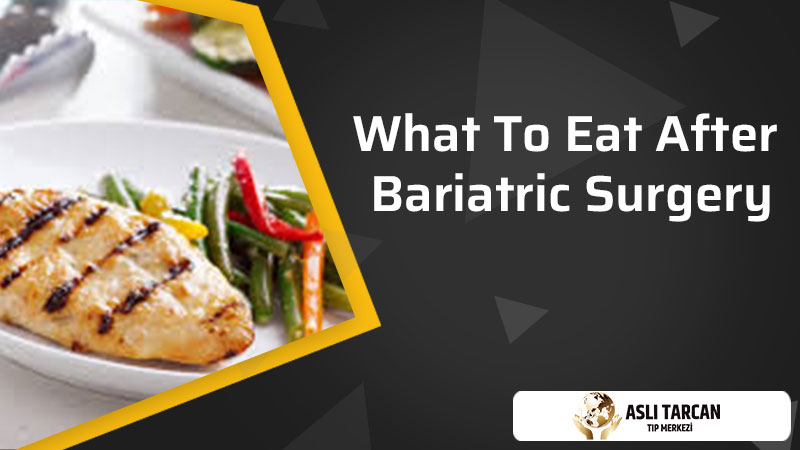What To Eat After Bariatric Surgery As the fat culture spread, bariatric surgery became more frequent. What To Eat After Bariatric Surgery? Anyone who conducts studies on the subject and decides to have or undergo bariatric surgery is likely to have similar concerns. It’s tough to rely so much on the outcomes of surgery conducted by a variety of techniques, orientations, and physicians. This is especially important if you wish to lose weight. Due to mistakes and unskilled hands, the outcomes of bariatric surgery may be dismal. As a result, people’s opinions may not necessarily reflect those that care about the environment. We’ll look at the difficulties of surgery and fat culture in this article. Let’s start with a definition of obesity. What are the procedure steps? What is the risk level associated with these risks? Let’s take a closer look at this.
First, What Is Obesity?
What Is Obesity?
Obesity is a complicated illness. Also, the characteristic excess of body fat. Obesity is more than simply an aesthetic issue. As a result of this medical condition, you’re more likely to acquire other diseases and health concerns, such as heart disease, type 2 diabetes, high blood pressure, and some types of malignancy. There are several reasons why some people struggle to prevent obesity. Obesity is usually caused by a mix of genetic genes, the environment, and personal food and activity choices. The good news is that even minor weight loss can help or avoid obesity-related health issues. Weight loss can be aided by dietary modifications, increased physical activity, and behavioral changes. Additionally, prescription medicines and weight-loss surgeries are possibilities for managing obesity.
Symptoms of Obesity?
Straitgh, if body mass index (BMI) 30 or greater than it, your are an obese person. To calculate your BMI, multiply your weight in pounds by your height in inches, then multiply by 703. Alternatively, multiply your weight in kilos by your height in meters squared. BMI gives a fair measure of body fat for the majority of people. However, because BMI does not directly measure body fat, certain people, such as strong athletes, may have a BMI in the obese group while having no extra body fat. As a result, measuring body fat is always an excellent option for confirming obesity.
What About The Details Of Bariatric Surgery?
What Is Bariatric Surgery?
Gastric bypass and other weight-reduction procedures, known as bariatric surgery, entail modifying your digestive tract to aid in weight loss. Weight loss surgery is an option for those who have tried diet and exercise without success, or who are suffering from serious health problems as a result of their weight. Some therapies restrict the amount of food you can consume. As a result of other therapies, the body’s ability to absorb nutrients is compromised. Some techniques are capable of performing both tasks. All weight-loss surgeries, whether bariatric or not, have substantial risks and side effects. Determining the long-term efficacy of bariatric surgery also requires making permanent changes to your diet and engaging in regular physical activity.
Who Is For Bariatric Surgery?
If your body mass index (BMI) is 30 or greater than that, you are an obese person. To calculate your BMI, multiply your weight in pounds by your height in inches, then multiply by 703. Alternatively, multiply your weight in kilos by your height in meters squared. BMI gives a fair measure of body fat for the majority of people. However, because BMI does not directly measure body fat, certain people, such as strong athletes, may have a BMI in the obese group while having no extra body fat. As a result, measuring body fat is always an excellent option for confirming obesity.
The Variance Of Surgeon Risks!
Bariatric surgery, like any major treatment, has significant health concerns, both short and long-term. Excessive bleeding, infection, bad responses to anesthesia, blood clots, lung or breathing difficulties, leaks in your gastrointestinal system, and mortality are all risks. Also, surgical operation connected too with those risks. The long-term risks and consequences of weight-loss surgery differ depending on the procedure. Bowel blockage, dumping syndrome (diarrhea, flushing, lightheadedness, nausea, or vomiting), gallstones, hernias, low blood sugar, malnutrition, ulcers, vomiting, acid reflux, and mortality are all possibilities.
What To Eat After Bariatric Surgery?
Following the suggested food requirements after bariatric surgery is critical. Your health care professionals carefully created these guidelines with the objective of reducing the number of calories you consume while delivering balanced meals that help prevent nutritional shortages and retain muscular tissue. You should think about and follow the route that your surgeons have shown you.
Protein : What To Eat After Bariatric Surgery?
You have to admit that proteins are cool. They retain muscular tissue by ingesting protein-rich meals. Eggs, meats, fish, shellfish, tuna, poultry, soy milk, tofu, cottage cheese, yogurt, and other milk products are examples of high-protein foods. Your daily protein intake should be between 65 and 75 grams. Don’t be concerned if you can’t meet this objective during the first several months after surgery.
Supplements : What To Eat After Bariatric Surgery?
When it comes to supplements, you need to think about a number of things. To avoid nutritional shortages, you must take the supplements listed below on a regular basis. Please keep in mind that all tablets must be broken or split into 6 to 8 tiny pieces. You can’t absorb entire tablets as well as you could before surgery, and pills might be tough to pass through your new anatomy.
Multivitamins : What To Eat After Bariatric Surgery?
Multivtamins… A classic way to improve your vision. But we are going to warn you. Take a high-potency chewable multivitamin and mineral supplement on a daily basis that has at least 18 mg of iron, 400 mcg of folic acid, selenium, copper, and zinc. Trader Joe’s and Centrum Adult chewable multivitamins are two brands that use this formula. Take two pills daily for at least three months following surgery, then one tablet daily for the rest of your life.
What Is The Final Result Of What To Eat After Bariatric Surgery?
Following the suggested food requirements after bariatric surgery is critical. Your health care professionals carefully created these guidelines with the objective of reducing the number of calories you consume while delivering balanced meals that help prevent nutritional shortages and retain muscular tissue. You should think about and follow the route that your surgeons have shown you. We wish you a determined day.
What Happens If You Eat Solid Food After Gastric Sleeve Surgery? Things to Know
Are you asking, what happens if you eat solid food after gastric sleeve surgery? As with any other type of major surgery, patients must follow a specific diet plan after their procedure to ensure successful healing and recovery. One of the most important rules for those who have undergone gastric sleeve surgery is to avoid solid foods for at least four weeks following the operation. Eating solid food too soon after gastric sleeve surgery can lead to severe complications and further complicate the healing process after the surgery for weight loss.

So, for the question, “what happens if you eat solid food after gastric sleeve surgery?”, here is the full explanation. The stomach takes time to adjust to its new size, and it may not be able to handle solid foods until several weeks or months have passed since the surgery. Therefore, it is best to stick to a liquid or pureed diet for at least four weeks following gastric sleeve surgery. After this period, you can slowly start introducing solid foods back into your diet. It is crucial to start with smaller portions of soft foods that are easier to digest, yet, your doctor will give the best direction. So, if you are wondering, “can I drink alcohol after gastric sleeve?” you know where to go.



